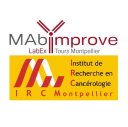


Institut de Génétique Humaine, CNRS/Université de Montpellier
contact: celine.gongora@inserm.fr

Department of Biological Chemistry and Molecular Pharmacology, Harvard Medical School
"Research in Dr Kruse's lab aims to elucidate the molecular basis of transmembrane signaling through the use of biochemistry, pharmacological studies, and structural biology. He is particularly interested in signaling pathways with connections to human health and disease, including G protein-coupled receptors and other transmembrane receptors. In the long term, he aims to leverage a detailed molecular understanding of these pathways to facilitate the development of new and better therapeutics."
Plus d'informations : https://kruse.hms.harvard.edu/home
Evergrande Center for Immunologic Diseases, Harvard Medical School
contact: nathalie.bonnefoy@inserm.fr

CNIO, Madrid
Contact : Antonio Maraver

Instituto Madrileño de Estudios Avanzados, Madrid, Espagne
contact: antonio.maraver@inserm.fr
More detailshttps://www.food.imdea.org/metabolic-syndrome-group

Instituto Madrileño de Estudios Avanzados, Madrid, Espagne
contact: antonio.maraver@inserm.fr
More detailshttps://www.food.imdea.org/metabolic-syndrome-group

Santiago de Compostela University Hospital, Espagne
Contact IRCM : Antonio MARAVER
More detailshttps://stemchus.wordpress.com/lab-members/

Santiago de Compostela University Hospital, Espagne
Contact IRCM : Antonio MARAVER
More detailshttps://stemchus.wordpress.com/lab-members/
